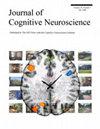同中有异:从重复性偶发预测错误中学习的脑区基础
IF 3.1
3区 医学
Q2 NEUROSCIENCES
引用次数: 0
摘要
预测错误(PE)是一种学习信号。与重复性预测错误相比,变化性预测错误如何影响大脑和行为中的外显记忆,目前尚不清楚。本研究调查了经历先前编码情节的多个替代版本("变化")或单一替代版本("重复")对大脑和行为的影响。参与者通过观看展示玩具故事的视频,对一组情节("原版")进行编码。在扫描过程中,受试者要么体验了原版,要么体验了先前编码情节的一个单一版本或多个替代版本。参与者的记忆表现通过对原始对象的回忆进行测试。变化和重复的PE显示了大脑在检测不匹配信息时的典型反应,包括额叶下部和顶叶后部区域,以及与记忆再激活有进一步联系的海马体和用于调节记忆巩固的杏仁核。此外,直接对比显示,经历不同和重复的 PE 会触发不同的脑区。其中,经历不同版本的 PE 会触发尾状核的活动,而尾状核是一个与 PE 相关的区域。与此相反,重复的 PE 激活的脑区更类似于那些用于检索原始编码情节的脑区。因此,ACC 和后扣带回皮层的激活似乎既能重新激活旧信息,又能整合情节记忆中新的但相似的信息。与神经研究结果一致的是,在进行 fMRI 时,如果只呈现相同而非不同的 PE,参与者回忆原始对象的准确性较低。目前的研究结果表明,重复的 PE 比变化的 PE 与回忆起的原始情节记忆的相互作用更强。本文章由计算机程序翻译,如有差异,请以英文原文为准。
Same Same, But Different: Brain Areas Underlying the Learning from Repetitive Episodic Prediction Errors
Prediction errors (PEs) function as learning signals. It is yet unclear how varying compared to repetitive PEs affect episodic memory in brain and behavior. The current study investigated cerebral and behavioral effects of experiencing either multiple alternative versions (“varying”) or one single alternative version (“repetitive”) of a previously encoded episode. Participants encoded a set of episodes (“originals”) by watching videos showing toy stories. During scanning, participants either experienced originals, one single, or multiple alternative versions of the previously encoded episodes. Participants' memory performance was tested through recall of original objects. Varying and repetitive PEs revealed typical brain responses to the detection of mismatching information including inferior frontal and posterior parietal regions, as well as hippocampus, which is further linked to memory reactivation, and the amygdala, known for modulating memory consolidation. Furthermore, experiencing varying and repetitive PEs triggered distinct brain areas as revealed by direct contrast. Among others, experiencing varying versions triggered activity in the caudate, a region that has been associated with PEs. In contrast, repetitive PEs activated brain areas that resembled more those for retrieval of originally encoded episodes. Thus, ACC and posterior cingulate cortex activation seemed to serve both reactivating old and integrating new but similar information in episodic memory. Consistent with neural findings, participants recalled original objects less accurately when only presented with the same, but not varying, PE during fMRI. The current findings suggest that repeated PEs interact more strongly with a recalled original episodic memory than varying PEs.
求助全文
通过发布文献求助,成功后即可免费获取论文全文。
去求助
来源期刊
CiteScore
5.30
自引率
3.10%
发文量
151
审稿时长
3-8 weeks
期刊介绍:
Journal of Cognitive Neuroscience investigates brain–behavior interaction and promotes lively interchange among the mind sciences.

 求助内容:
求助内容: 应助结果提醒方式:
应助结果提醒方式:


